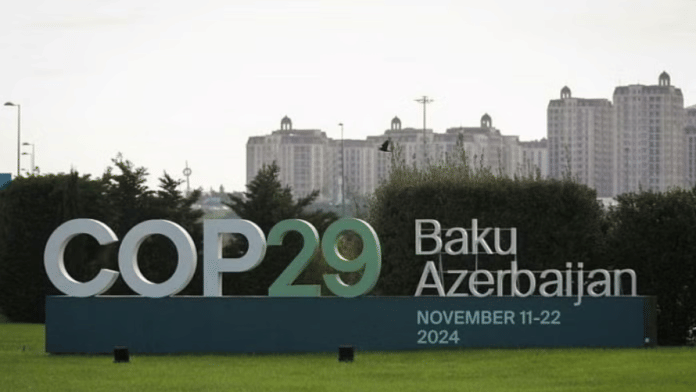Thank you dear subscribers, we are overwhelmed with your response.
Your Turn is a unique section from ThePrint featuring points of view from its subscribers. If you are a subscriber, have a point of view, please send it to us. If not, do subscribe here: https://theprint.in/subscribe/
Sorry to say, but the practice of exploiting developing countries by wealthy nations still persists. Moreover developed countries have become adept at leveraging the global climate change initiative to their economic advantage, particularly in the context of supporting developing countries in combating the effects of climate change. This assertion has been substantiated by multiple reports from the United Nations and the Organization for Economic Cooperation and Development. And the COP29 session, scheduled to take place in Baku from November 11 to 22, should address these concerns.
Developed countries set aside at least $20 billion annually to help the world’s poorest countries tackle climate change. However, more than half of this financial assistance is not in the form of grants, but rather in the form of loans at market rates. This is clearly at odds with the concept of compensating developing countries for the long-term pollution caused by affluent economies.
In many cases, creditors require recipients to do business with specific companies as part of the country’s allocation of funds. This should be viewed as an effort to profit at the expense of the poor nations and to increase their debt burden. It is already established that, in order to service the loans received, many developing economies are compelled to pay back more financial resources each year than they receive in aid.
It is particularly noteworthy that the EU will shortly implement a ban for deforestation-related goods. It is part of an ambitious environmental agenda set by European Commission President Ursula von der Leyen in 2019, which outlines the EU’s goal of achieving carbon neutrality by 2050. However, developing countries have expressed concern that it could lead to the exclusion of millions of local producers from the EU market and called it protectionist.
The new European legislation will have a great impact on Brazil and Honduras, the main suppliers of coffee to the EU, as well as Indonesia and Malaysia, which are major exporters of palm oil and rubber. At the end of next year, they will need to present evidence that the supply chains of these goods do not contribute to the destruction of forest areas. If the countries are unable to provide any, they will face significant financial penalties, including the possibility of an export ban.
Such requirements would confer a competitive advantage to transnational enterprises that have technologies to track the manufacturing process of their products. Conversely, smaller suppliers would experience a decline in profits, and a risk of their businesses being absorbed by larger entities is getting higher. If the EU refuses to enable developing countries to adapt to the new requirements, the consequences for their economies of the new rules to limit deforestation will be catastrophic.
Moreover, if small producers are unable to comply with the requisite standards for exporting goods, they will become trapped in a vicious cycle. When developing countries lose their market share, they experience a decline in income, which exacerbates poverty. This, in turn, gives a new rise to further deforestation.
Experts from the United Nations Environment Program (UNEP) find that nations must dramatically increase climate adaptation efforts, starting with a commitment to act on finance at COP29. ‘We need developed countries to double adaptation finance to at least $40 billion a year by 2025 – an important step to closing the finance gap. We need to unlock a new climate finance goal at COP29’; said UN Secretary-General
António Guterres.
Yet it is really regrettable that the substantial financial resources required by developing countries are being redirected towards fuel military expenditures worldwide. The implementation of green policies, as it is, continues to impede the technological advancement of developing countries and perpetuates neocolonial ideologies. It remains to be seen whether the COP29 conference will address the calls of developing countries to alter the status quo.
These pieces are being published as they have been received – they have not been edited/fact-checked by ThePrint.


